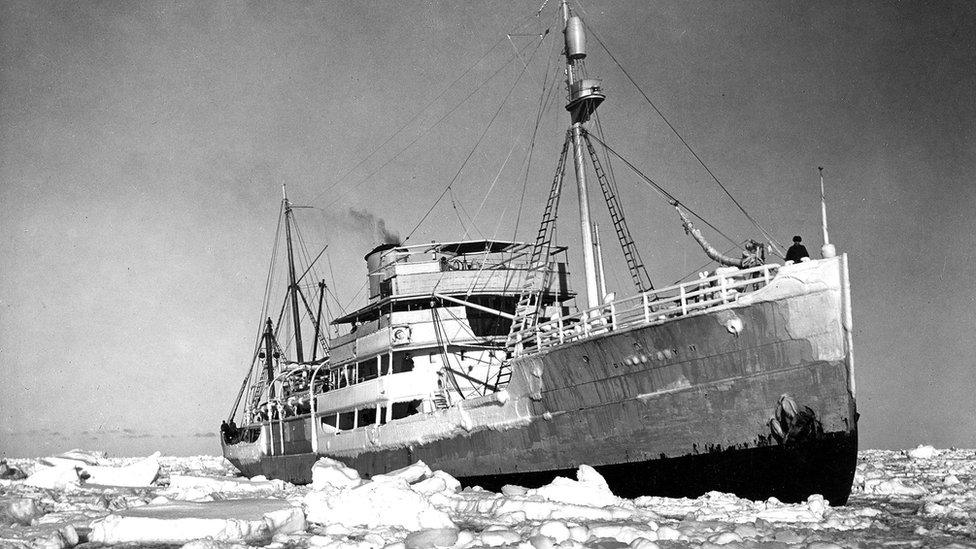Ferry delivery faces short delay but latest costs on track
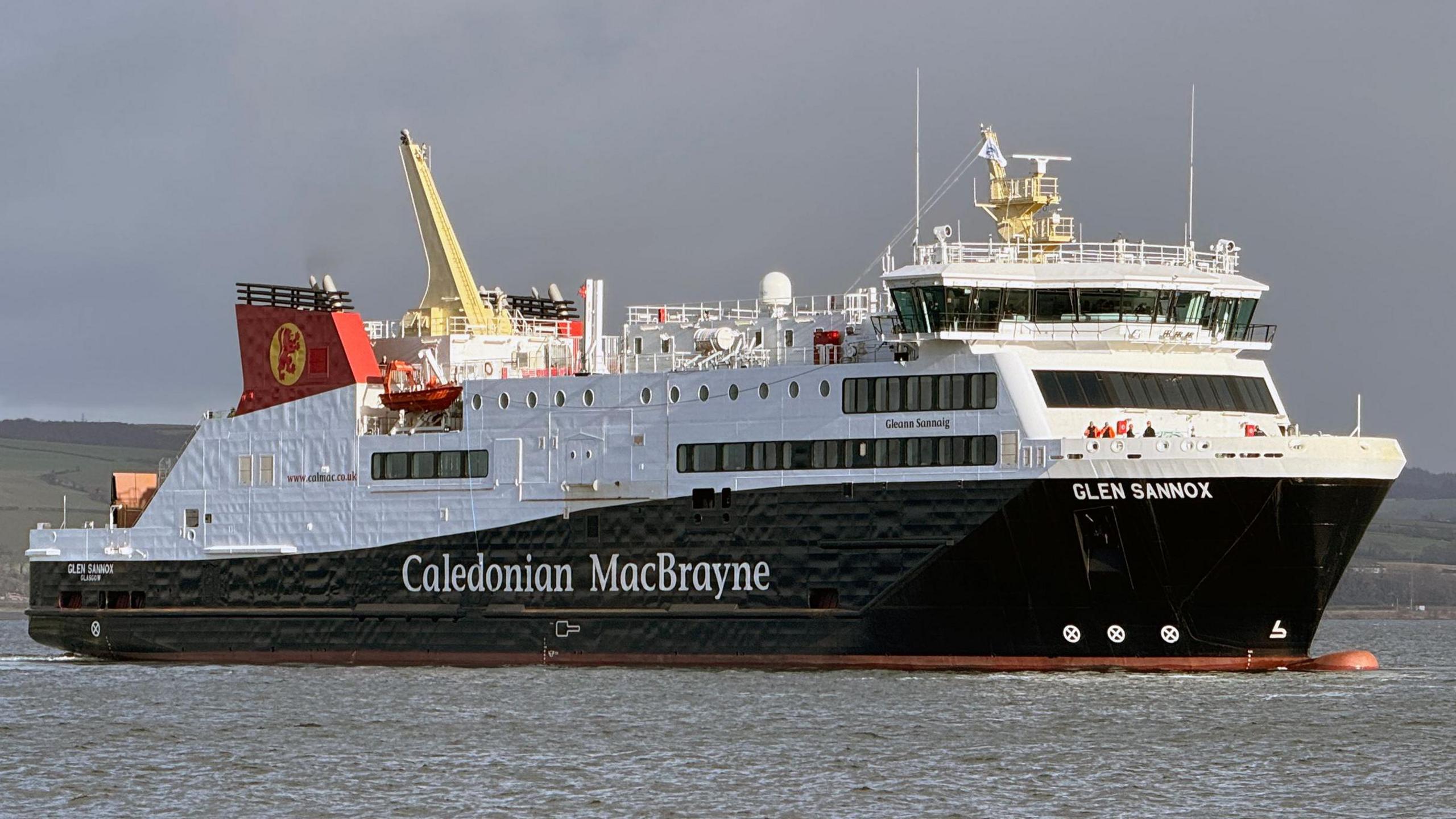
Glen Sannox is said to have performed well in sea trials running on diesel, but the dual-fuel ship's gas systems are still being commissioned
- Published
Delivery of a long-delayed CalMac ferry being built at a nationalised shipyard has been put back by nearly three weeks - but latest cost estimates remain on track.
Glen Sannox was due to be ready by 31 July, but Ferguson shipyard in Port Glasgow now aims to hand over the ship in the week beginning 19 August.
In an update to MSPs, interim chief executive John Petticrew said challenges linked to the ship's liquefied natural gas (LNG) propulsion system were the main problem.
Glen Sannox and its sister ship Glen Rosa are the first dual-fuel LNG ferries ever built by a UK shipyard.
Were Scotland's new gas-powered ferries a bad choice?
- Published20 April 2024
'Time running out' plea over shipyard's future
- Published16 May 2024
The two ferries were originally due for delivery in 2018 but have faced repeated design challenges and cost overruns.
Both are destined for CalMac's busy Arran route.
The latest update comes just three days after Economy Secretary Kate Forbes told the Scottish Parliament she was unaware of any new delays.
She said the news was disappointing but that she was encouraged that all sides were working together to deliver the ships as soon as possible.
CalMac said it may be able to absorb the delay into its own plans for eight weeks of crew familiarisation trials, so that the ship could still enter service in September.
The latest estimated cost to complete the two ships remains at just under £300m, on top of £83m that was paid out before the firm was nationalised and £45m of government loans that were largely written off.
In his regular monthly progress update, external to MSPs, Mr Petticrew wrote: "The LNG system has been well-documented as the biggest challenge we were facing since our last report.
"It has proved even more difficult and has impacted the progress in other areas, namely the engine compartments."
Mr Petticrew listed a number of remaining challenges, which include acceptance trials and sign-off by safety regulator the Maritime and Coastguard Agency.
The second ship, Glen Rosa, was launched from the slipway earlier this year and fitting out work is expected to be complete by September 2025.
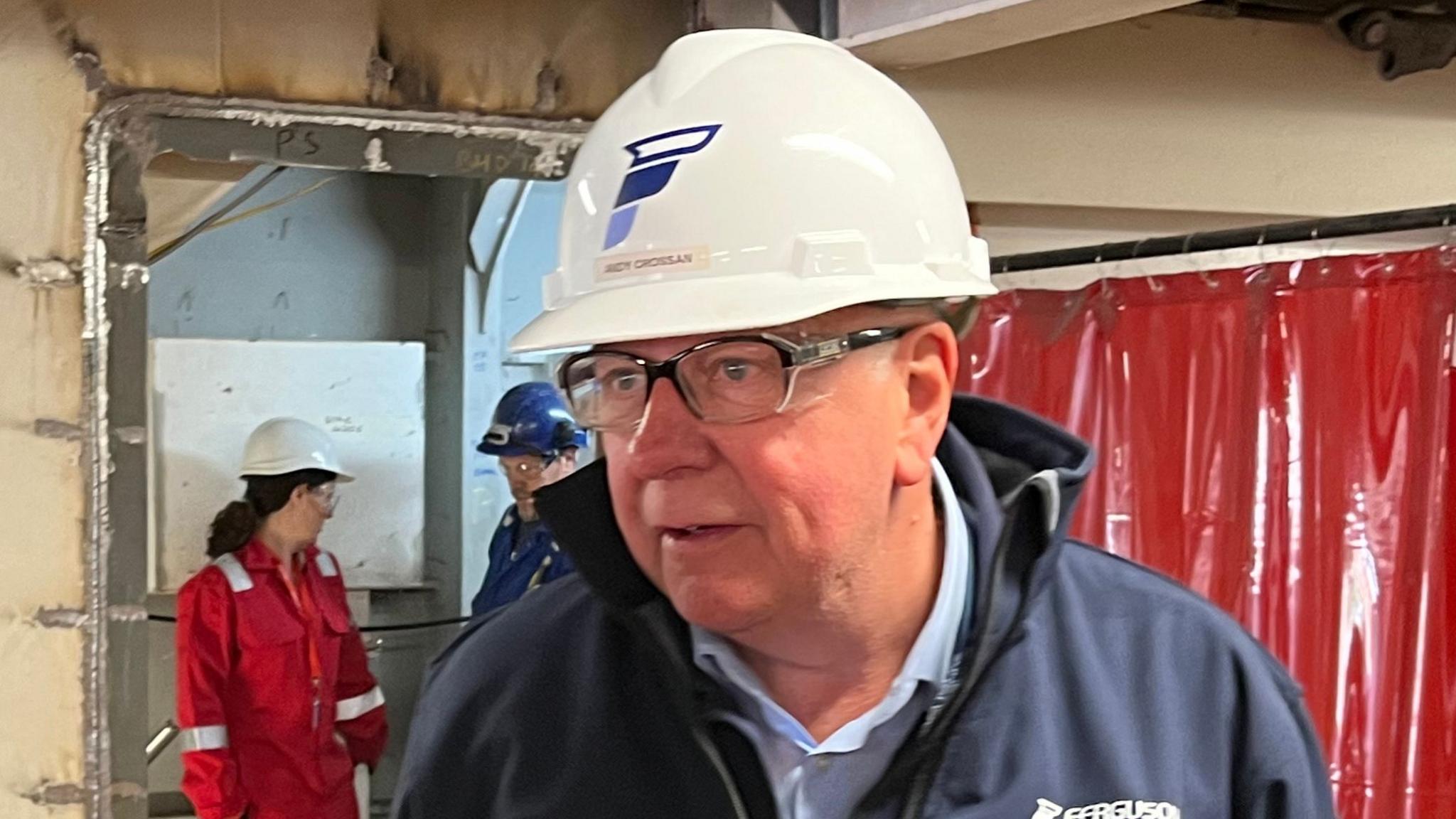
The shipyard ended the contract of Glen Sannox programme director Andy Crossan last week
Mr Petticrew was appointed as interim chief executive in March following the surprise removal of former boss David Tydeman.
Last week it emerged that the programme and delivery manager for Glen Sannox was also leaving after a decision to end his contract.
Andy Crossan had been seconded from government-owned ferries procurement agency CMAL since March 2022 in an effort to improve working relations.
On Tuesday, Kate Forbes told MSPs she had been informed by Ferguson Marine that his contract had ended following a "breakdown of trust".
Mr Crossan - who had previously worked as a senior manager at the yard until 2007 when the firm was known as Ferguson Shipbuilders - continues to work for CMAL.
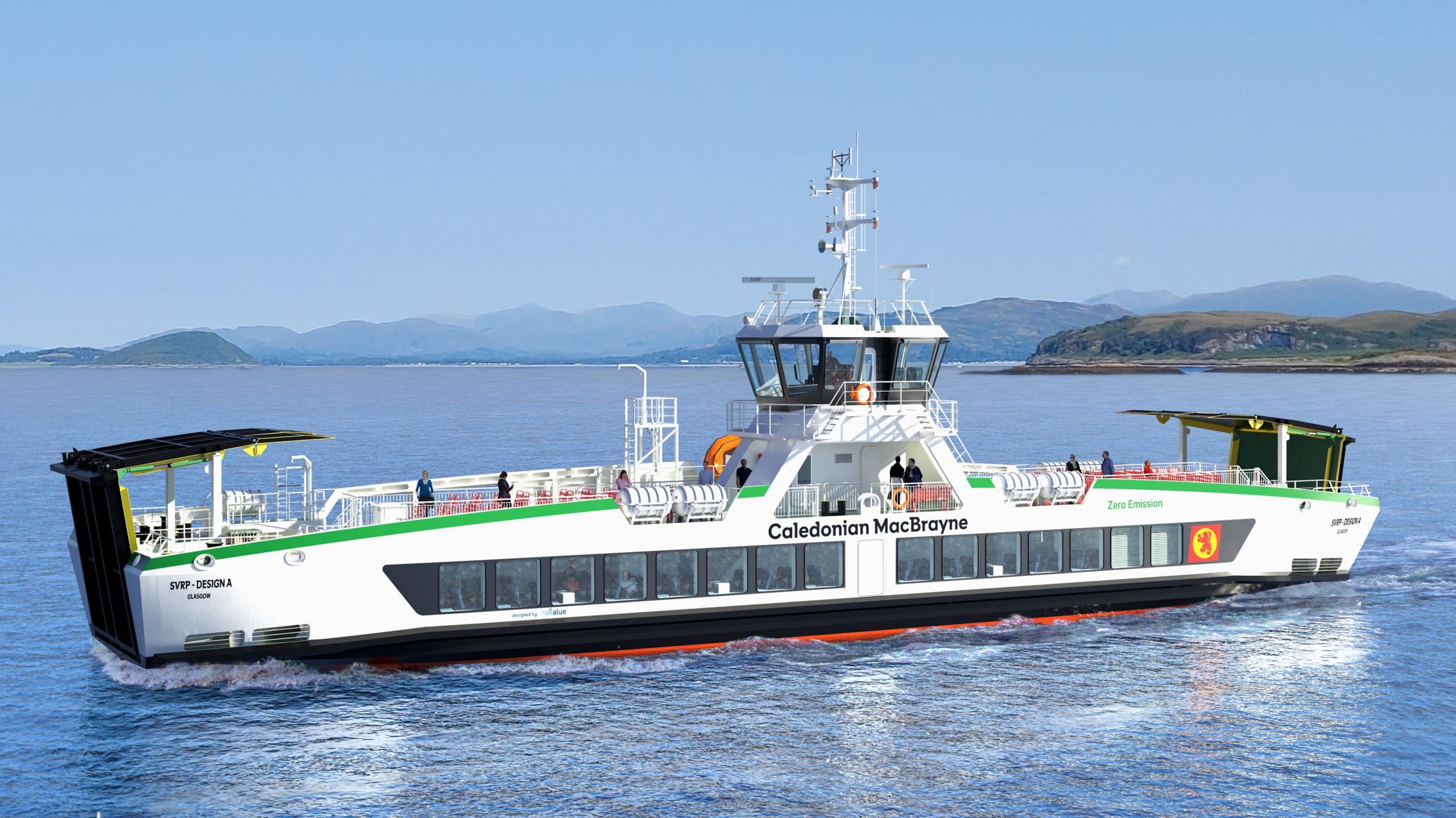
Ferguson's is waiting to learn if it will be directly awarded a contract to build a fleet of smaller vessels for CalMac. Concept drawing supplied by CMAL.
Ms Forbes also indicated on Tuesday that a decision on whether to directly award a contract for seven smaller CalMac vessels to Ferguson Marine could be announced shortly after the general election.
The all-electric ships are similar to vessels the yard has built on-time and on-budget in the past, and would provide a pipeline of work while investment is made to improve productivity.
Ms Forbes said a decision had been delayed by election "purdah rules" which prevent major spending announcements during a campaign.
The £97m contract for the two large ferries was awarded to Ferguson's in 2015, a year after the shipyard was rescued from administration by businessman Jim McColl.
Construction soon ran into difficulties and a bitter dispute developed between Mr McColl's firm FMEL and CMAL, the government-owned company that procures ships for the CalMac fleet.
FMEL claimed the original specification for the ships, put out by CMAL, was rushed and flawed, and that subsequent interference had resulted in extra costs.
CMAL rejected those claims, and insisted that poor management decisions and "castastrophic contractor failure" were the reasons for the problems.
Mr McColl's claim for extra costs were rejected and the deadlock eventually saw the firm fall back into administration in 2019. It was then taken into public ownership.
Fabrication and welding have been described as high quality by CMAL, but costs have continued to rise, in part because work has been repeatedly re-done due to design mistakes.
Related topics
- Published20 April 2024
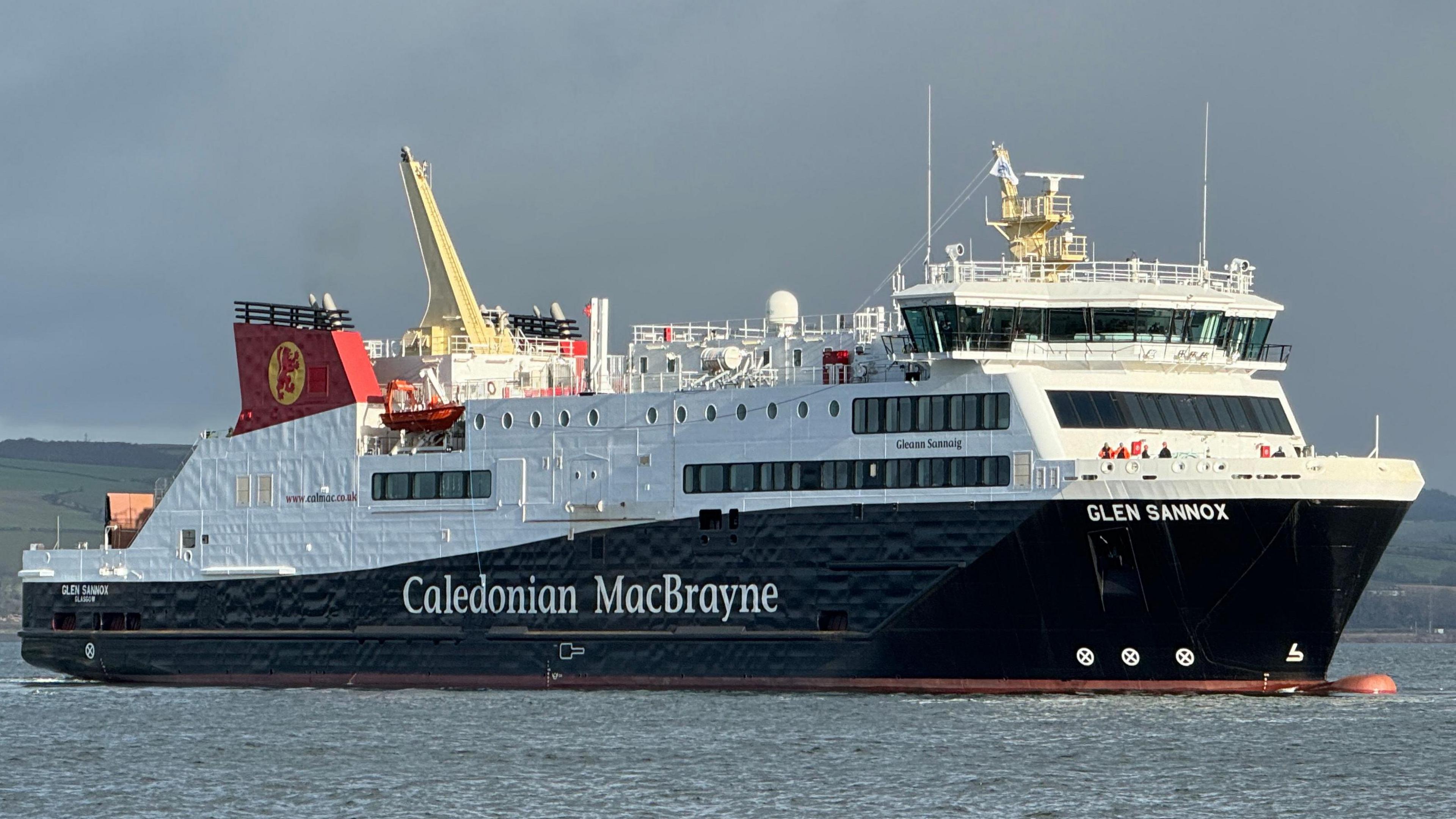
- Published21 June 2024
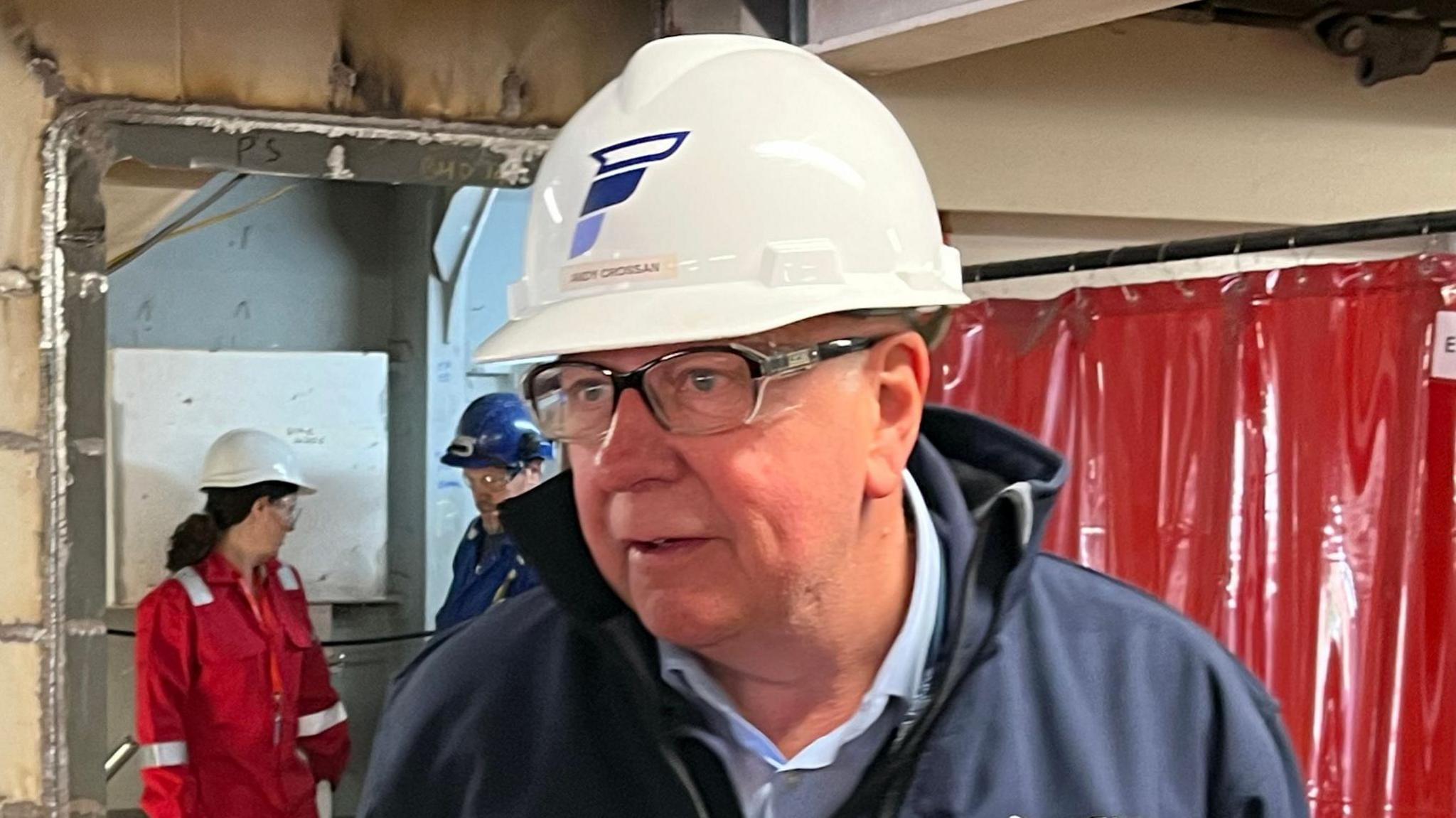
- Published26 November 2023
